The sun is golden across the landscape, the mid-morning-spring sort of light that falls across the rooftops of the Hôpital Robert-Debré in the 19th arrondissement, just on the edge of the périphérique (ring road around Paris).
The industrial complex appears to be the last place one would expect to find flowers, or anything much growing at all. But, behind a rusted white gate and up a flight of stairs, Félix and Tran Phi of the Ferme Florale Urbaine are bent over the gardens hard at work.

The Ferme Florale Urbaine cultivates sustainable, seasonal flowers and sells them to both florists and individuals. They are part of the growing “Slow Flower” movement, joining the ranks of slow food and fashion.
“Almost 80 percent of flowers are imported,” Félix said. “That’s huge. It’s a huge undertaking… We think that flowers are beautiful, but not very useful. They’re just for pleasure. With flowers, there is no reason to pollute.”
The city of Paris also has an initiative through its Parisculteurs program to vegetalize the city. Through it, Félix and Tran Phi were able to obtain the space for the Ferme Florale. Parisculteurs helped them with the paperwork to launch it as a full-time business.
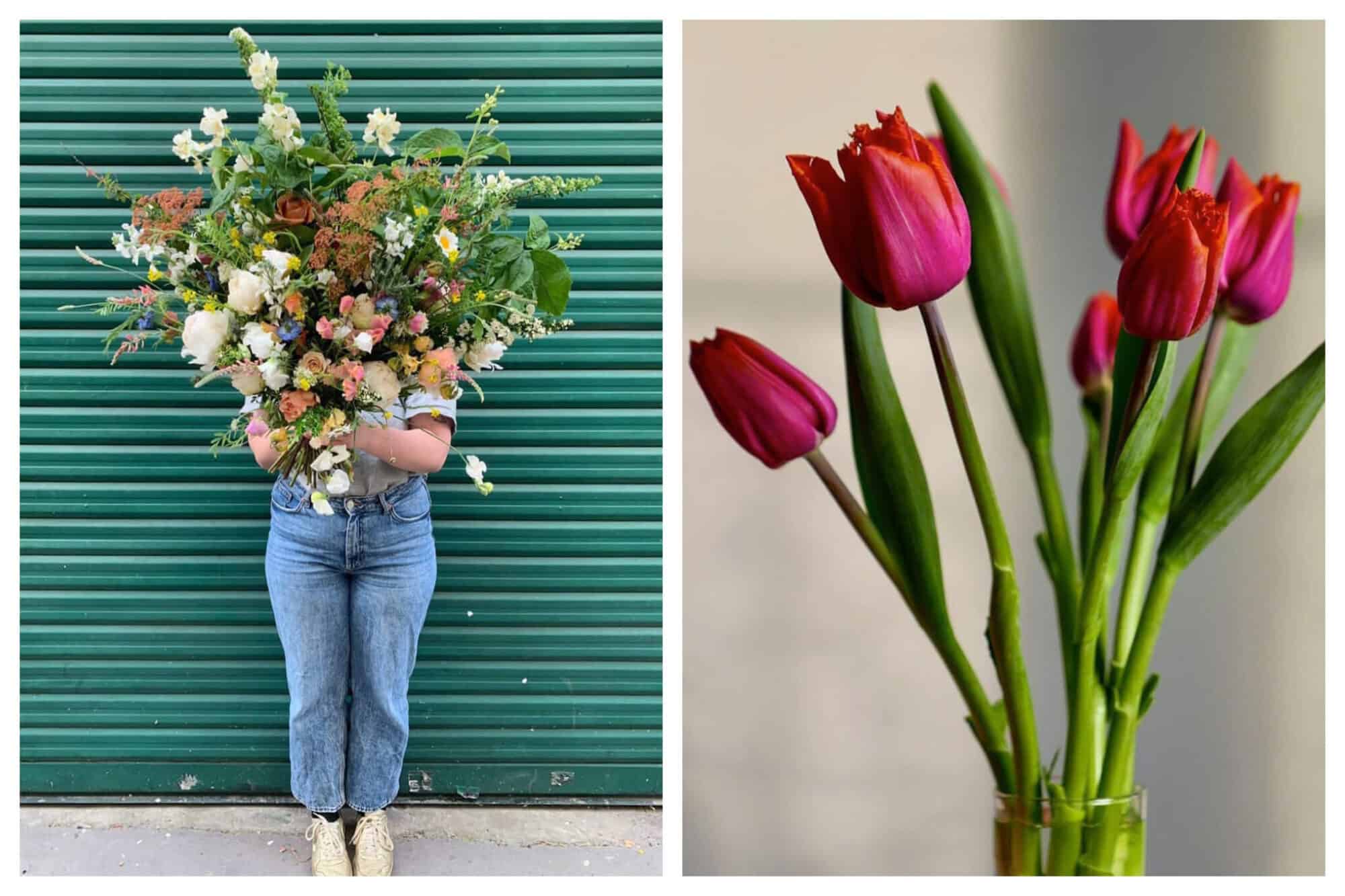
In a city where there seems to be a florist on every corner, awareness about the environmental impacts of the floral industry can be key to making better choices when buying and sourcing. Pesticides, fuel for transport, design practices, and other factors contribute to pollution. According to a 2015 report by Greenpeace, pesticides carry heavy consequences for pollinators, who are key to crop success.
“Of the 124 major commodity crops directly used for human consumption, 87 (70%) are dependent on pollination for enhanced seed, fruit, or vegetable production,” the report cited. “Besides pollinated crops, which represent <0.1 % of all flowering plants worldwide, between 60 and 85% of wild flowering plants require animal pollinators.”
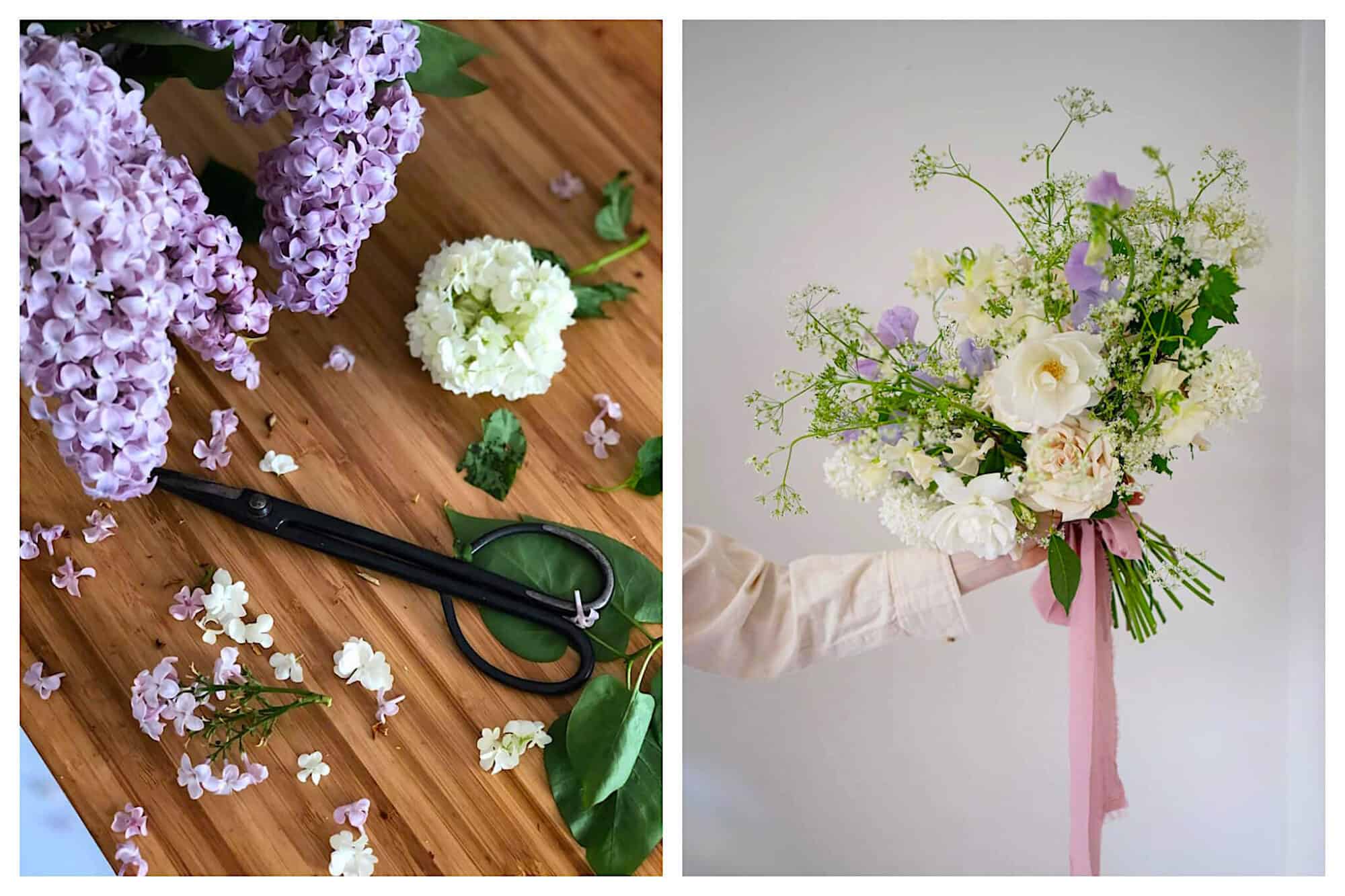
According to Félix and Tran, there are a few other urban floral farms in Paris’s Île-de-France region and the country, though the number is still few and the growers struggle to make the initiatives profitable. That is, perhaps, where those like Clémentine Lévy of Peonies, located in the 10th arrondissement, come in.
“It is important that Parisians demand that their florist have quality flowers,” they said. “The florists who work with us always say our flowers are better than the ones they usually have. They are different; they are fresher and surprising.”
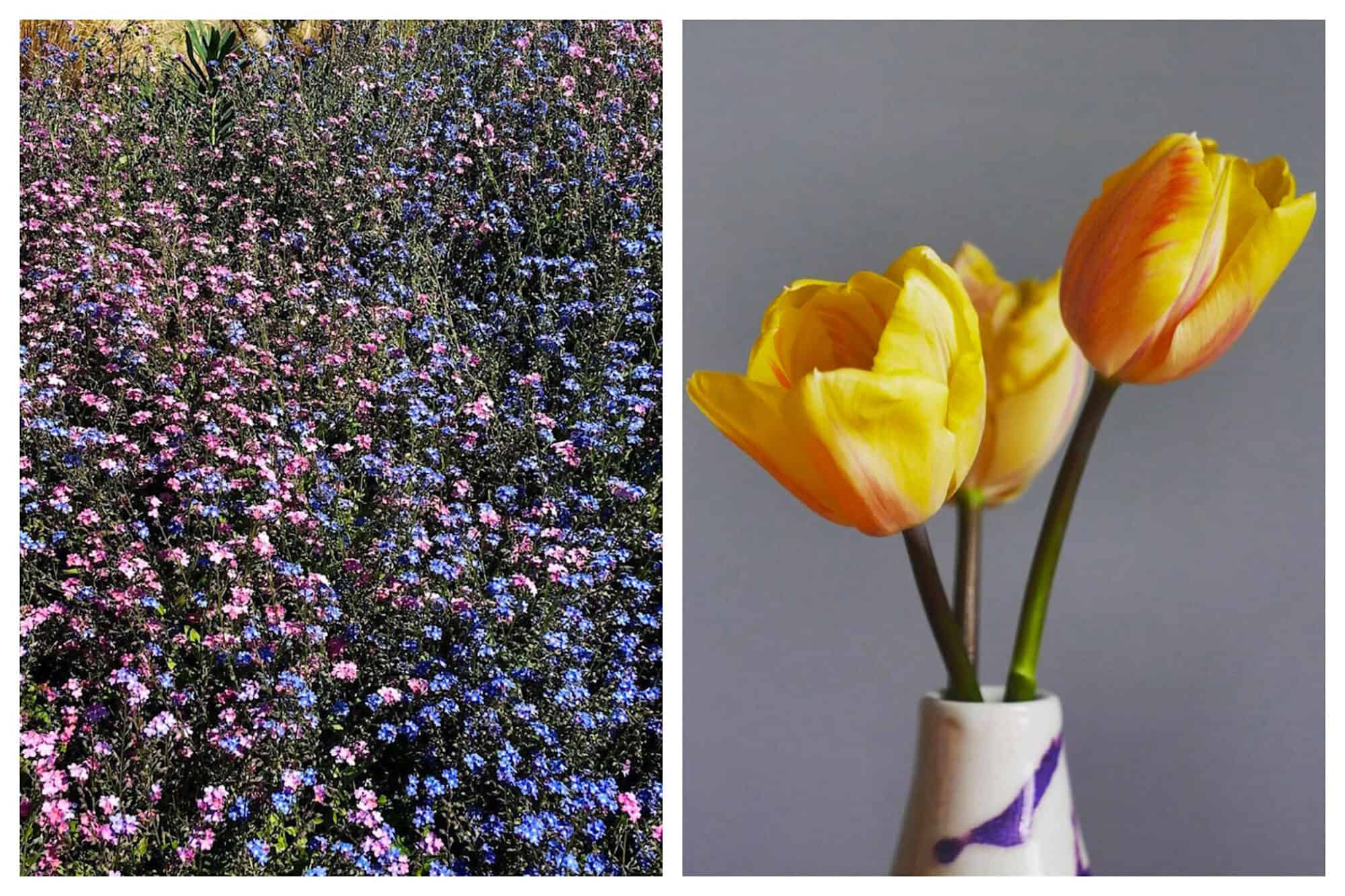
Peonies is a café-florist-atélier founded in 2016. Visitors can pop in for a slice of cake, a tartine, or a full lunch and leave with a seasonal bouquet. Clémentine sources 90 percent of her flowers from French growers, and the offerings vary by the season. This means that during the winter, there are only dried bouquets in stock, as greenhouses can have a highly negative environmental impact. Clémentine noted that she still has clients ask why she doesn’t sell fresh flowers during the winter, when it seems all the other florists are.
“It’s a long and difficult process to educate people and help them understand that flowers have seasons, like with fruits and vegetables, or with seafood, even cheese,” she said. “This underscores our hyper-active society, which is used to having everything right away. By respecting the seasons, we learn to appreciate the return of the peonies or dahlias in July.”
For those who have design aspirations, Clémentine offers workshops in her atelier, making it her mission to teach safe, sustainable, seasonal floral arrangement practices.
“The Slow Flower movement goes beyond seasons,” she said. “It also includes outdated floral design practices. At the École des Fleuristes de Paris (Paris’s florist school), they teach students to create arrangements using foam blocks filled with oil and other chemical products that are not recyclable, and end up in our oceans.”
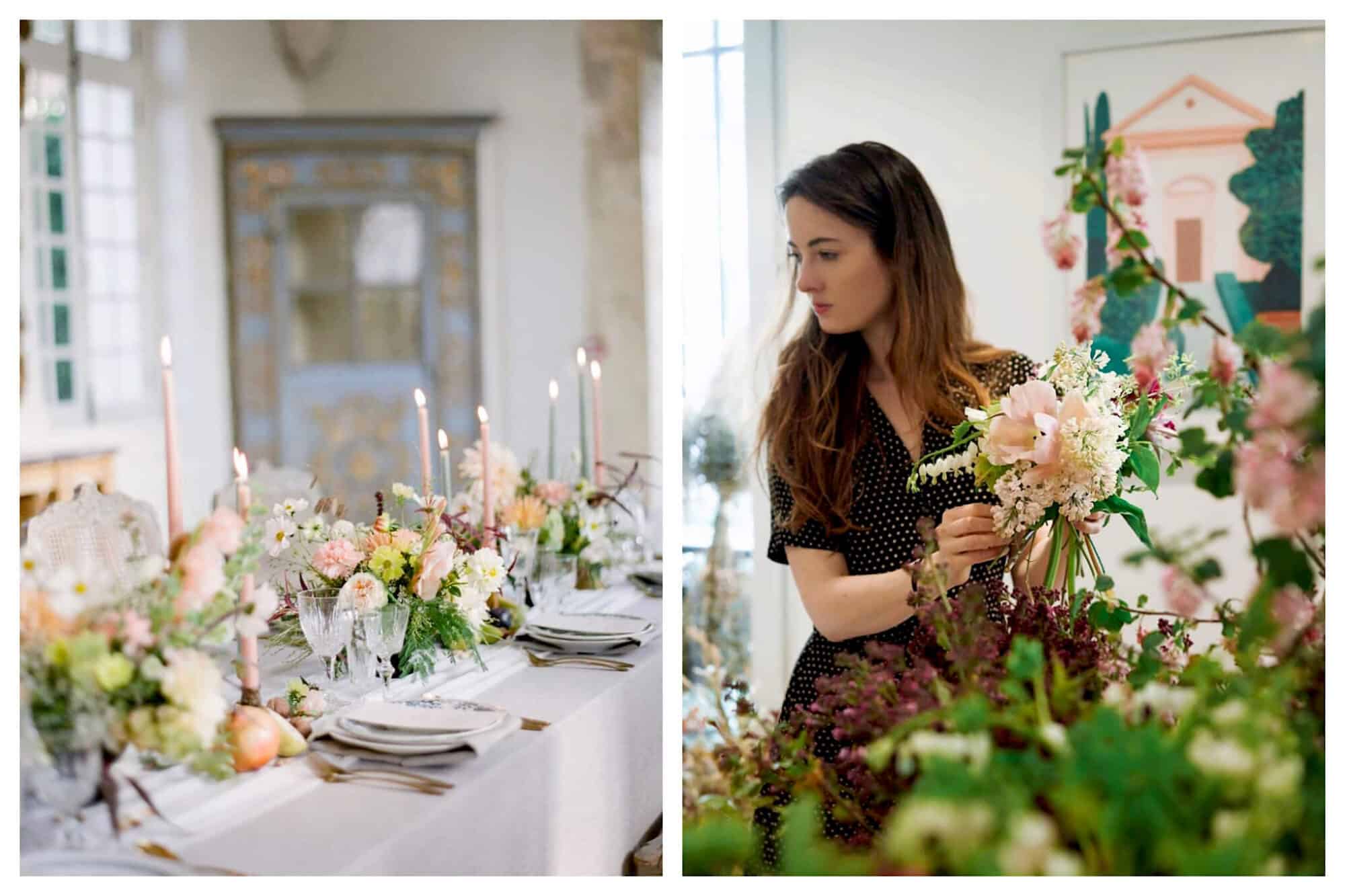
While the movement may still be in the early stages, the numbers are encouraging. And looking at the list of growers and florists compiled by Collectif de la Fleur Française, whose goal is to support the local, seasonal French flower industry, it’s booming.
“This seems trivial,” Clémentine said, “but if all the florists in France took the time to discover these new techniques, it would be a real revolution.”
Finding flowers:
Peonies – 81 rue du Faubourg Saint-Denis, 75010
Ferme Florale Urbaine – Visits by appointment only; order online.
Plein Air Paris – Visits by appointment; order online.
Collectif de la Fleur Française – A list of growers and sellers in Paris and France.

Related Links
- Read more about the slow flower movement
- French perfume brand uses French flower essential oils in their perfumes… find out about our giveaway with them!
- Read more about Ferme Florale and how their contributing to the slow flower movement in France
Written by Marissa Wu for HiP Paris. Looking to travel? Check out Haven In for a fabulous vacation rental in Paris, France or Italy. Looking to rent long-term or buy in France or Italy? Ask us! We can connect you to our trusted providers for amazing service and rates.

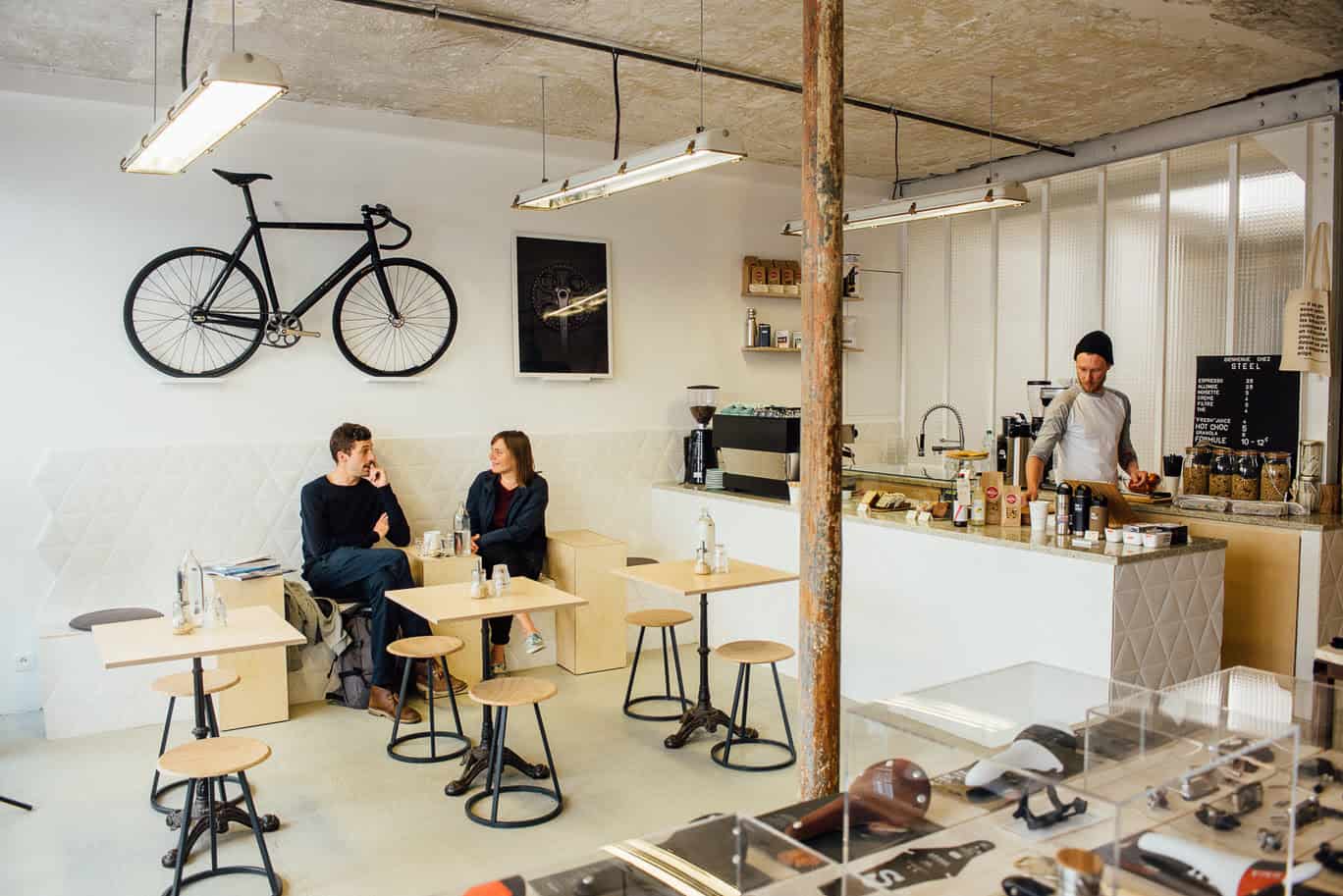

RELATED ARTICLES
What to do in Paris in June
by
Kathryn Kinley
Living, Loving, Learning: Starting a New Life in Paris
by
Marjorie Preval
A Local’s Guide to the 3rd Arrondissement: Life in the Haut-Marais
by
Zoe Adams
Mother’s Day for Francophiles – Last Minute Gifts
by
Caroline Camp
Sweepstakes Alert: Win a Week in a Paris Apartment
by
Erica Berman
Peek-a-boo: Traveling To Paris With Kids
by
Emily Dilling
Paris in May: Things to Do, Weather, Culture, Sports & More
by
Reagan O’Brien
Rue de Lévis: A Market Street in Paris’s 17th Arrondissement
by
Yvonne Hazelton
What to Wear in Paris in Spring
by
Caroline Camp
Marais Apartment For Sale, Steps From Place des Vosges | Historic Views & Luxury
by
HiP Paris
Paris Like the First Time, Again
by
Bryan Pirolli
What to Do in Paris in April: Events, Warmer Weather, Gardens and More
by
Reagan O’Brien
Off the Tourist Path: Five of Paris’s Prettiest Secret Streets
by
Diana Liu
Paris Through Another Lens: Travel Writer vs. Tourist
by
Bryan Pirolli
The Top Women Chefs Defining Paris’s New Dining Scene
by
Lily Heise
The Creative Life in Paris: ‘Thinking in Watercolor’ by Jessie Kanelos Weiner
by
Caroline Camp
An Empty Nester in Paris
by
Sylvia Sabes
On Becoming Parisian: 10 Signs I Belong in the City of Light
by
Rooksana Hossenally
Not Into Valentine’s Day? Here’s What to Do Instead
by
Yvonne Hazelton
Valentine’s Day Gift Guide For Francophiles
by
Mia Baccei